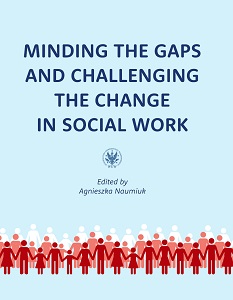Social Work and Labor Migration
Social Work and Labor Migration
The Impact of Maternal Migration on Families and Children Left Behind
Author(s): Jeany Rose P. Teguihanon
Subject(s): Pedagogy
Published by: Wydawnictwa Uniwersytetu Warszawskiego
Keywords: children left behind; families left behind; maternal migration; crisis of care provision; social welfare
Summary/Abstract: Labor migration is considered circular and recurrent in various parts of the world and involves the interchange between its costs and benefits. The trade-offs between cost and benefits are often most critical to female migrants based on their position in the family as primary caregivers of children, and their vulnerability in society. This paper explores the understanding of the impact of mother’s migration on families and children left behind and the social work strategies available. The research shows that although remittances are very beneficial to families, their negative implications on child and family welfare cannot be disregarded. While some countries have established support for women, their families, and their children, there is still a need for a deepened understanding of the socio-cultural and political factors that affect social action. Therefore, it is essential to conduct further research to identify gaps in policies and services and develop more appropriate micro, mezzo, and macro interventions that utilise bilateral or multilateral cooperation among various local and international social work actors. For this study, the notion of children left behind refers to children whose parent(s) have migrated (external or internal migration) for work, and who are left behind in their home country or community. They may be left behind in the care of the remaining parent, relatives, friends, or by themselves.
- Page Range: 33-52
- Page Count: 20
- Publication Year: 2021
- Language: English
- Content File-PDF

